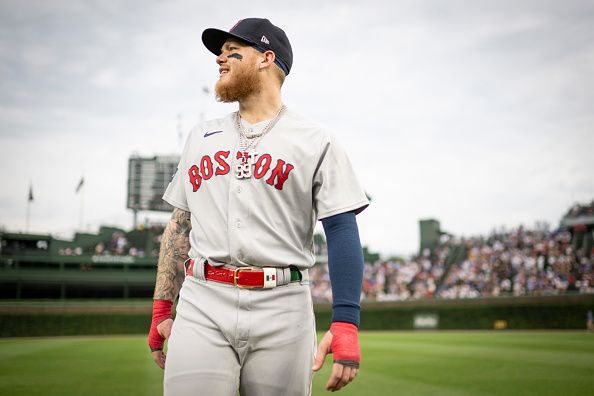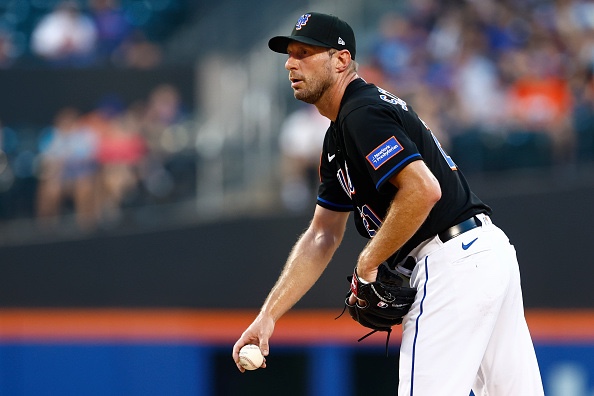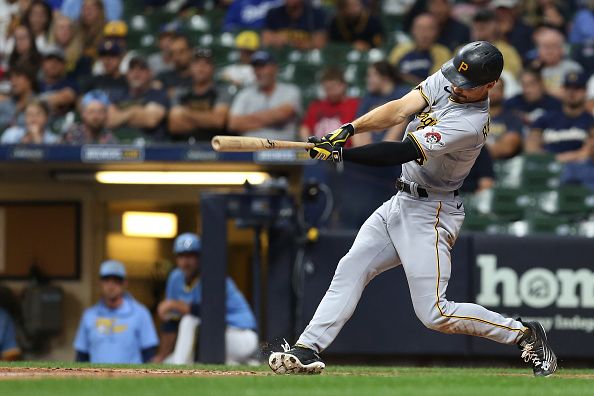More and more over the past few seasons, we’ve been unentertained by trade deadlines that have failed to deliver the trades baseball itself has been tirelessly promoting. Now probably just a function of the baseball season with little fanfare, instead of the hyped-up commodity it once was, the trade deadline bears little resemblance to a landmark monstrosity it once was approaching the baseball’s final stretch run into the postseason.
Perhaps it may be that teams haven’t been as trigger-happy as before, but a web of teams that may be a little gun-shy isn’t an adequate enough excuse. Perhaps as fans, are we expecting a trade deadline product that just isn’t plausible in the baseball fabric of today?
In this article, we’ll dive into three reasons why teams haven’t lived up to what the trade deadline reputation has been before, and how to rectify the deadline to get the best out of baseball’s integrity.
Prospect Pandering
Prospects are often the bloodline to a successful baseball organization through callups, career peaks and eventually baseball seniority. According to Fangraphs, in 2016 the average baseball team was composed only of 44 percent homegrown talent who would make it the majors. That means a whopping 66 percent of baseball teams are made up of acquired talent through facets of waiver pickups, Rule 5 draftees, trades and free agents signings. You’d tend to believe that teams are nurtured, groomed, and handpicked to become the eventual predecessors to the former assembly of major league stars, yet it’s abundantly clear that simply isn’t the case.
So how about the Oakland Athletics and Tampa Rays, who put such a premium on young and affordable talent to make up for the financial disadvantages of teams with continent-sized wallets like the Yankees and Dodgers? Well, believe it or not, it’s those Athletics and Rays clubs that have such a knack for the telephones, extracting every bit of major league talent at and near their disposal? It’s these economically uninclined baseball teams that seem to have the best knowledge of how to find these diamond in the rough players, cashing in on financial inefficiencies that fly under the noses of the big market behemoths.
But that’s history. Analytics are now at the forefront, and ERA is just as universal as WAR, wRC+, and xwOBA. You can’t stash a low batting average, high on-base hitter anymore. It won’t happen. Period.
Relievers Cost Waaaayyyyy Too Much
Baseball’s teams have become ultra acute to which prospects would be included in a trade. That’s why relievers haven’t been as freely traded, for their volatility and the sometimes wild asking prices make it hard to find a trade partner.
Teams declining deals isn’t a bad idea, but it simply isn’t practical. Kirby Yates of the Padres owns baseball’s best ERA, FIP, xFIP (a stat based on HR per FB, for which he leads baseball) and saves. You can’t put together a stronger season, but there are 70 better players based on WAR in baseball. 70!
Marco Gonzalez’s 4.32 ERA, fourth-most hits allowed, and fifth lowest strikeout rate is equivalent to Kirby Yates’ career season. These innings in baseball, however dominant, are not even on the same pay scale as the bulk innings eaters like the Gonzalez or Mike Leake type.
Not to mention there has yet to be one reliever of the past five seasons to post a top 30 WAR (hint, hint Aroldis Chapman). Relievers are volatile, inconsistent, headaches and very capricious by nature. Nobody’s going to want a 30-year-old aging arm for any kind of prospect. It just doesn’t make any sense.
(That’s not to say I am ardently opposed to the inaction of teams like the Dodgers who did nothing at the deadline.)
Sustained Success > Gunning for World Series
Famed baseball writer Tom Verducci noted that he’s “yet to have seen a ring for baseball’s top [prospect] system.”
Teams like the Dodgers and Yankees are getting pummeled by the media and fans for not making any calculated moves at the deadline. The MLB expected the biggest trade deadline in recent memory with the waiver deadline, MLB’s secret cheat sheet to trading for players when the trade deadline had already been met, being removed.
Data shows that baseball teams have over the years been more reluctant to trading at the deadline of July 31st, much less the old adaption on August 31st. But moving the deadline up and thinking that pushing the envelope forward, and perhaps surrendering teams to a state of submission on a date where teams can’t tell a serious playoff team from fakers, was not the proper course of action.
-

Credit: Sabir Aden, Fan Source Network
The Dodgers, on the cusp of their most successful season to date, decided to not supplement their bullpen, an area that plays such a critical premium role in the postseason.
The Yankees have the seventh-worst starting pitching ERA but decided to do nothing at the deadline. Now a likely playoff-bound team’s hopes probably rest on that unsteady rotation.
The division-leading Minnesota Twins, with their best offense in franchise history, only added two relievers and nothing to their starting rotation, which has been very weak as of late.
Noticing a pattern? These teams — the Dodgers, Yankees, Twins, and others — decided inaction was the best action. Prospects like Dustin May and Alex Kirilloff weren’t worth a legitimate shot at a championship.
The compelling candidates were there, and the jewel of the patch, Felipe Vazquez, would’ve been a seamless cross match to any of these teams (besides the Yankees). Vazquez’s dominance and four-and-a-half years of control seemed to make the decision almost too easy, right?
And yet the Dodgers and every other team declined on a fairly reasonable asking price for a pitcher that would have not made any of them only conference favorites, but maybe even World Series favorites. A left-handed compliment to Kenley Jansen would have sounded perfect. Often you hear of top-end talent putting players in a position to succeed, allowing Ross Stripling and Joe Kelly to be sensational seventh-inning men and the opening the door for what could have been an endless amount of possibilities.
How do you fix it?
Major League Baseball has always been the runt of the litter in terms of promoting their product. The NBA, NFL, NHL (and maybe even MLS) do so much better getting the best out of what they have in their deadline, free agency, and the rules and regulations of their sports. This conversation — somehow and someway — always blames the collective bargaining agreement for being the source of this dissent and conflict in the sport.
MLB tried to create a conduction oven by unifying the trade deadline, but all we got was more stalling and loitering. This is now the baseball we all will have to become familiar with, because every team does their due diligence. Only players that are undeniable trade pieces are going to be traded, and refinement at the margins are all we as fans are going to be fulfilled with.
Sure, the deadline could be push backed or teams could be allowed to trade draft picks. But that would only widen the gap between big market and small market teams, and even the headlining Grienke trade was built up of the financial relief the Diamondbacks apparently desperately needed. Had Grienke been a $10 million dollar hit instead of the $30 million-plus he was against the Diamondbacks payroll, he wouldn’t be an Astro.
So, where do we go from here? The trade deadline isn’t much of an attraction anymore. The hot stove is about the most barren tundra in the galaxy, and teams are tanking for strategic purposes.
So here’s a call to action — a plea, if you will — to every baseball team and the Commissioner’s Office: make baseball fun again.
If that means drastically overhauling protocol and the traditions of the past, so be it. But we are at a crossroads of epic proportions. Ratings are falling just as fast as managers are pulling their starting pitchers, and MLB has fallen victim to an institutionalized breach of ethics and systematic malpractice of the game’s integrity.







